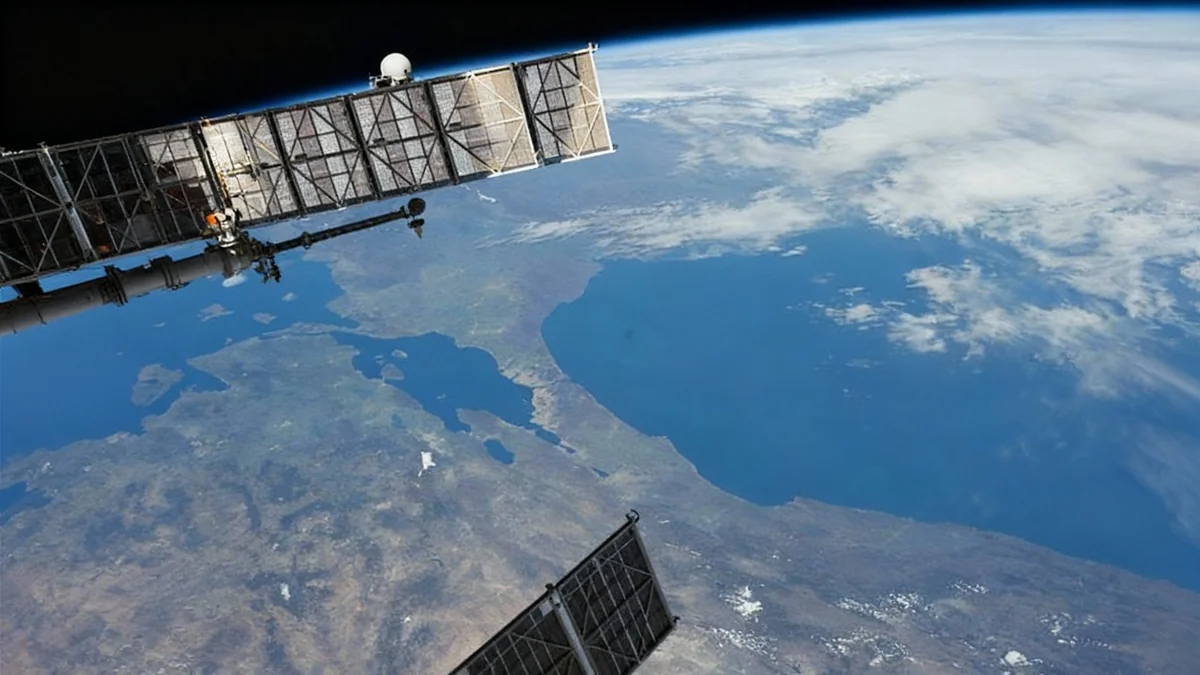Turkey is rapidly advancing its national space program, marked by the recent launch of its first domestically-produced communications satellite and a series of astronaut missions. The country is now setting its sights on the Moon, with plans for an impact landing in 2026, as it seeks to align its technological achievements with a more assertive role in global space diplomacy.
With a significant budget increase and a growing domestic aerospace industry, Ankara is positioning itself as a key emerging player in the space sector. However, experts note that a clear diplomatic strategy is needed to match the country's ambitious technological goals.
Key Takeaways
- Turkey plans a hard-landing mission on the Moon in 2026, followed by a soft-landing with a rover in the 2030s.
- The national space and aviation budget is set to increase to $209 million in 2026.
- Recent milestones include launching the TÜRKSAT 6A satellite and sending the first Turkish astronauts to space.
- There is a growing call for Turkey to establish a formal space policy and a National Space Council to guide its diplomatic efforts.
A Nation Reaching for the Stars
In 2024, Turkey joined an exclusive group of nations by successfully launching TÜRKSAT 6A, becoming the eleventh country capable of manufacturing its own geostationary communications satellite. This achievement is a cornerstone of a broader national strategy that has gained significant momentum over the past few years.
The program has also celebrated major human spaceflight milestones. Last year, Alper Gezeravcı became the first Turkish astronaut to visit the International Space Station. He was followed by Tuva Cihangir Atasever, who participated in a suborbital research mission, further cementing the country's presence in space exploration.
A Decade of Progress
Turkey's recent successes are built on years of investment. The country has been developing its Earth observation capabilities since launching the RASAT satellite in 2011 and Göktürk-2 in 2012. In 2023, it launched IMECE, its first indigenously produced satellite with sub-meter resolution imaging capabilities.
To support these ambitions, Turkey is increasing its financial commitment. The national space and aviation budget will rise from $140 million in 2025 to $209 million in 2026, signaling a strong government backing for the sector's continued growth.
The Lunar Research Program: A Two-Phase Approach
The centerpiece of Turkey's future space efforts is the Lunar Research Program, known as AYAP. The program is divided into two distinct phases, each with progressively more complex objectives.
The first phase, AYAP-1, aims for a hard-landing on the lunar surface by 2026. This mission is not designed for the spacecraft to survive, but rather to test critical systems and technologies required for reaching the Moon, serving as a vital proof-of-concept for future endeavors.
Following this, AYAP-2 is planned for the 2030s. This more ambitious mission involves a soft-landing, a controlled descent that allows a spacecraft to land intact. The goal is to deploy a rover to operate on the lunar surface, conducting scientific research and exploration.
Building a Domestic Industry
A robust ecosystem of public and private entities supports Turkey's space program. Key players include Turkish Aerospace Industries, ASELSAN, Roketsan, and DeltaV, which are developing everything from satellite integration to advanced propulsion systems. Startups like Gümüş Aerospace and Plan-S are also contributing with nanosatellite platforms.
The Missing Piece: Space Diplomacy
While Turkey's technical capabilities are advancing quickly, there is a recognized need to develop a corresponding diplomatic framework. In 2021, President Recep Tayyip Erdoğan announced a National Space Program with ten ambitious goals, but a formal national space policy document outlining the country's vision and principles has yet to be published.
Ahmet Yozgatlıgil, President of the Middle East Technical University and a former Deputy Minister of Industry and Technology, highlighted the need for better coordination. He suggested the Turkish Space Agency (TUA), founded in 2018, is well-suited to lead these efforts.
"TUA is very suitable to be declared as a national coordinator for space diplomacy," Yozgatlıgil stated, emphasizing the agency's role in harmonizing national space projects.
Experts recommend establishing a National Space Council, similar to models in the United States and France, to ensure alignment between different government agencies, from the military to scientific institutions.
Carving a Niche on the Global Stage
Turkey is a long-standing member of the UN Committee on the Peaceful Uses of Outer Space (COPUOS) and has ratified all five core UN space treaties. However, it has not yet taken on leadership roles within these international bodies.
A significant point of discussion is whether Turkey should join the Artemis Accords, a US-led framework for cooperative lunar exploration with 57 signatories. Joining could enhance Turkey's credibility and interoperability with international partners.
Yozgatlıgil suggests a balanced approach, arguing that Turkey should consider joining the Accords while also keeping "the doors open for collaborations with other lunar exploration initiatives," such as the Russia- and China-led International Lunar Research Station (ILRS).
This dual-track approach could leverage Turkey's unique geopolitical position to act as a bridge between Eastern and Western space powers. The country has already initiated partnerships with a diverse range of nations, including the United States, Japan, Senegal, and member countries of the Organization of Turkic States.
As Turkey prepares to host the 77th International Astronautical Congress in Antalya in 2026, the world will be watching. This event provides a perfect platform for Ankara to showcase not only its technological prowess but also its vision for becoming a responsible and constructive leader in shaping the future of global space governance.





